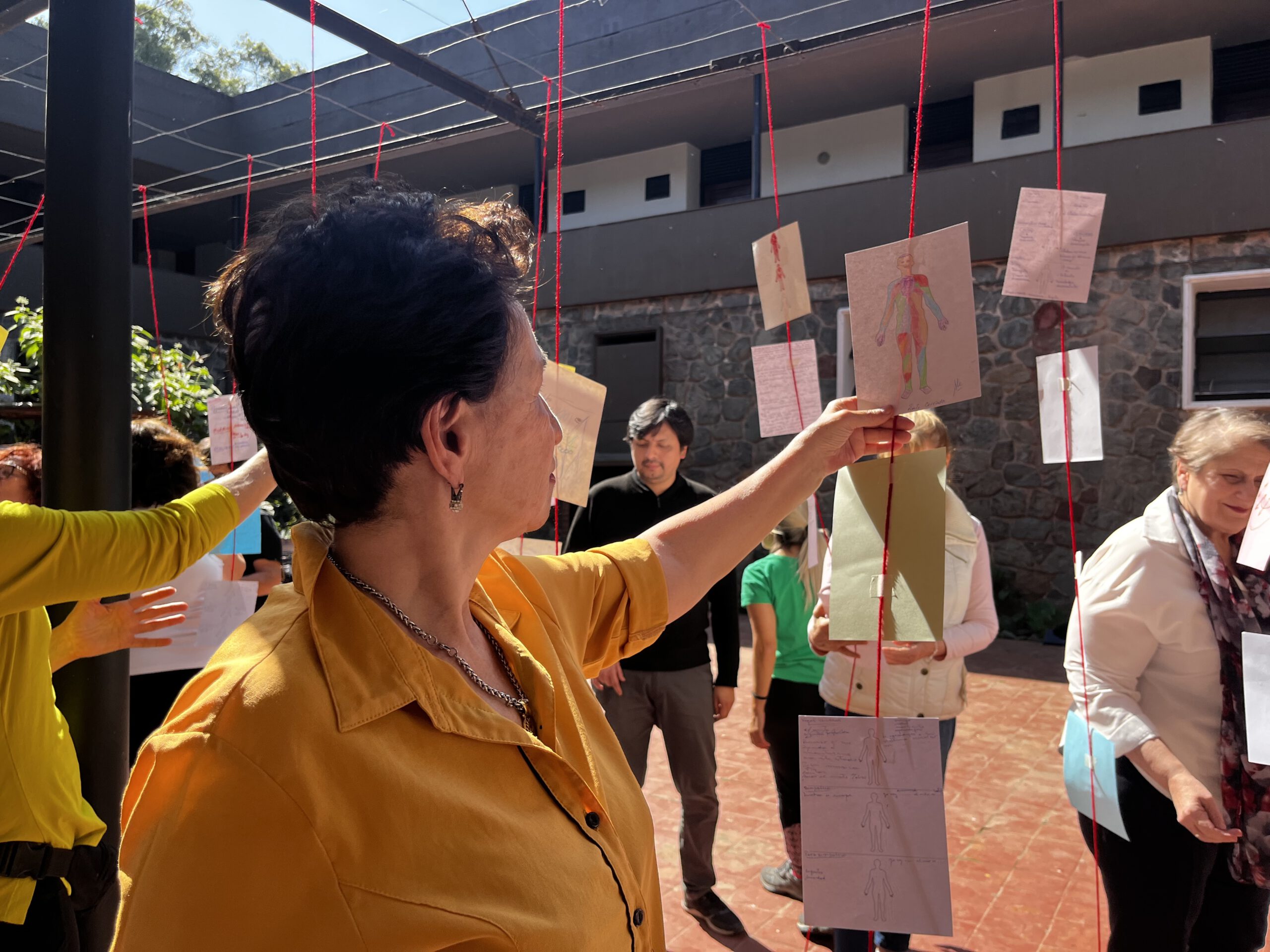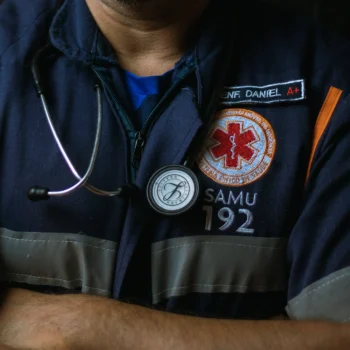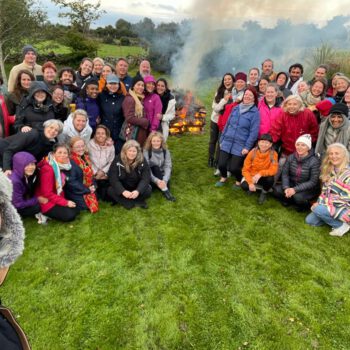In September I traveled to Argentina, to meet some of the participants from the Spanish Compassionate Inquiry Professional Training in person, for the first time.
During my two-week stay in Buenos Aires, I first visited Casa Betania, a mental health care center in Quilmes, that until recently offered care exclusively to children and young people. Since most of its staff have completed our training, they are now also treating the adult caregivers of their patients, offering a more comprehensive service for the whole family. During our meeting we explored the difficulties they’ve experienced in implementing CI with adults. Through play, and the connection with our bodies, we explored the sub-personalities that can arise in us as therapists, learning to ‘let go of the agenda’ and attune to the client’s needs and intentions.
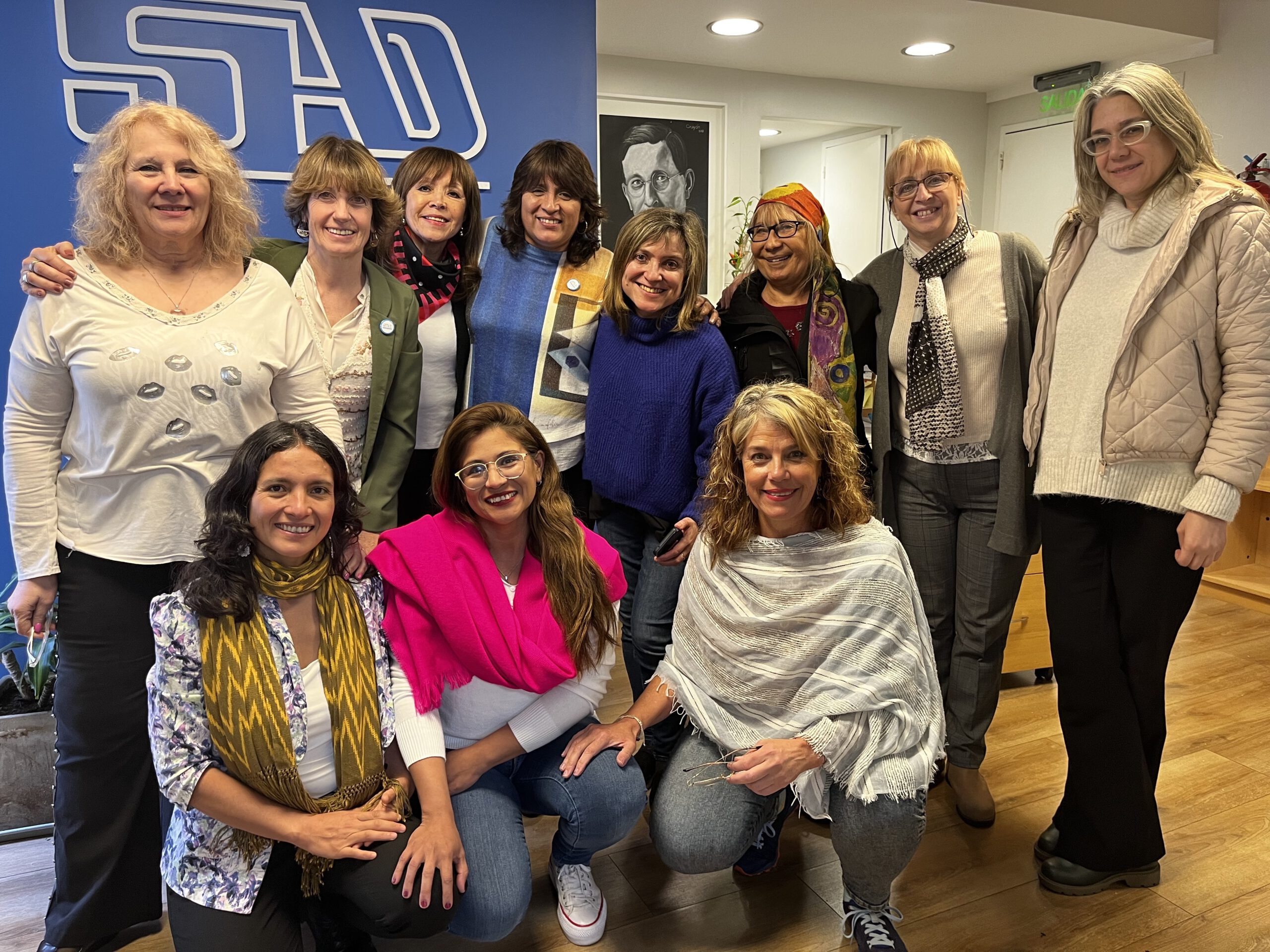
This first encounter gave me the inspiration for what was to come: “Connecting From the Heart;” a workshop aimed at people interested in applying CI to explore physical or mental health symptoms; and “Compassion as Medicine,” a workshop aimed at health professionals working with diabetes patients.
Both events, sponsored by the Argentine Diabetes Association, were the culmination of previous work I had done online, using CI to support people diagnosed with type-one diabetes over the course of five sessions. Guided by the premise that “every diagnosis begins as a coping mechanism,” and some observations that physicians from the association had shared with me about their difficulties in working with their patients, we explored compassionately approaching the symptoms, and not only those associated with diabetes itself, but also patients’ resistance towards accepting the disease and implementing the suggested treatments.
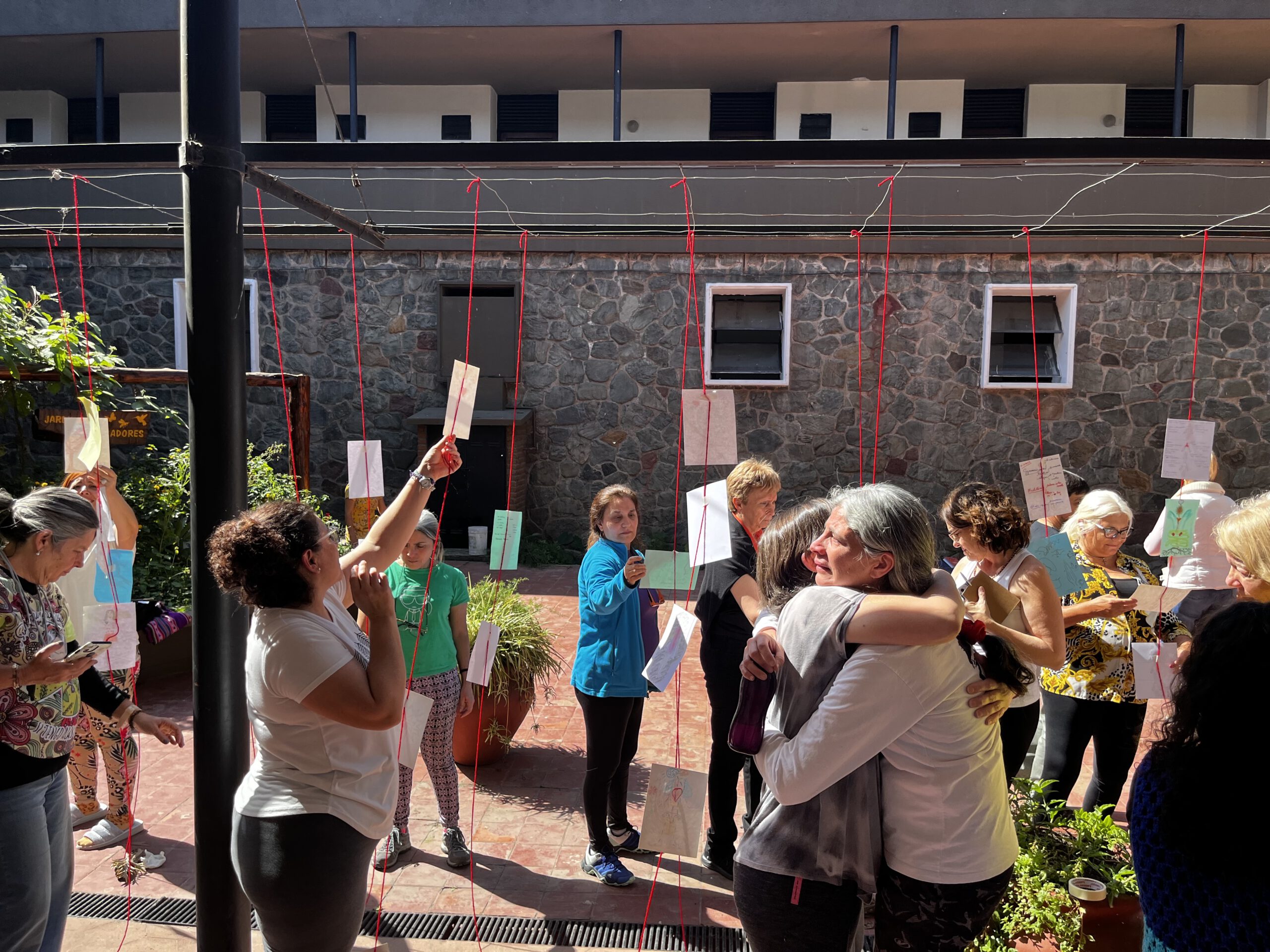
The changes patients experienced in just a few sessions were astonishing. In addition to decreasing their symptoms of depression and improving their blood glucose levels, patients reported having more motivation to take care of themselves. Olga Escobar, the director of the association’s psychosocial department said, “This compassionate approach helped our clients realize that they can do something about their health and wellbeing.” The doctors, often fatigued by the high level of work they have, expressed enormous relief. As one of them affirmed: “we now have patients who are more available to take responsibility for their own nurturing, which is always a great victory, especially when it comes from their own self-care and esteem.”
My trip concluded in Tucuman, where I offered a retreat and an introductory workshop on the Compassionate Inquiry model. Thanks to Ana Bronzetti and Ximena Espeche’s Trainers’ Center, we were able to introduce this approach to more than eighty people, exploring the power of curiosity and compassion to increase our capacity to feel, to regulate our nervous systems, and to build more connection in our human and non-human relationships.
Since we started with the first cohort in March 2022, we have had almost 200 Spanish-speaking participants from different places in Latin America, Spain and other parts of the world. I am thrilled to witness the growth of this community, especially after having a taste of the contributions that different participants have made in their own locations. May we continue doing the work that we do, watering seeds of connection and healing to build a more compassionate world.
